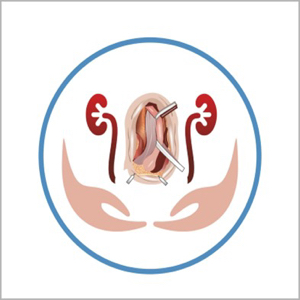+918048126570

This is your website preview.
Currently it only shows your basic business info. Start adding relevant business details such as description, images and products or services to gain your customers attention by using Boost 360 android app / iOS App / web portal.
Pregnancy with renal / ureteric stone , The ch...
Pregnancy with renal / ureteric stone , The challenges presented by pregnancy with ureteric or renal stones necessitate meticulous management to ensure the well-being of both the mother and the unborn child. Ureteric stones, mineral and salt deposits forming in the ureter, and renal stones, which develop in the kidneys, can induce substantial pain and discomfort. In pregnancy, handling ureteric or renal stones involves a delicate balance between effective treatment and fetal safety. Considerations include: Pain Management: Kidney stone-induced pain can be intense. However, certain pain medications, particularly nonsteroidal anti-inflammatory drugs (NSAIDs), are typically avoided during pregnancy, especially in the third trimester, due to potential fetal risks. Safer alternatives such as acetaminophen may be considered. Fluid Intake: Adequate hydration, generally safe during pregnancy, is crucial to facilitate stone flushing. Increased fluid intake can help prevent stone formation and alleviate symptoms. Monitoring and Imaging: Diagnostic imaging like ultrasound or non-contrast MRI may monitor stone size and position. Minimizing radiation exposure, especially in the first trimester, is essential. Medical Expulsion Therapy (MET): In certain cases, alpha-blockers may be used to relax ureter muscles, easing stone passage. The safety of such medications during pregnancy requires careful consideration. Surgical Intervention: If conservative measures fail or complications arise, surgical interventions may be necessary. The choice depends on stone size and location. Procedures like ureteroscopy or placement of a ureteral stent may be considered, with risks and benefits thoroughly assessed. Timing of Intervention: Whenever feasible, elective stone removal procedures are typically delayed until after the first trimester, the critical period for fetal development. Pregnant individuals with ureteric or renal stones should collaborate closely with a healthcare team, including obstetricians and urologists. A personalized treatment plan prioritizing both maternal and fetal safety should be developed, involving a careful assessment of the risks and benefits of each intervention based on the specific circumstances of the pregnancy.

